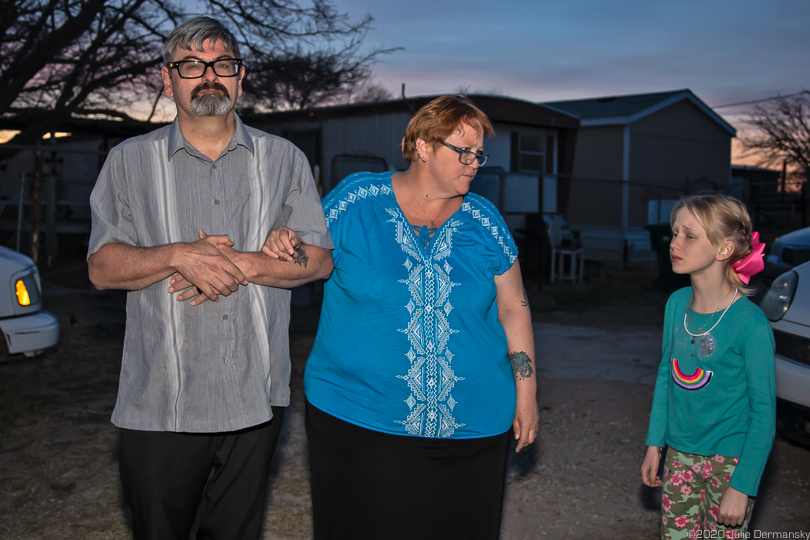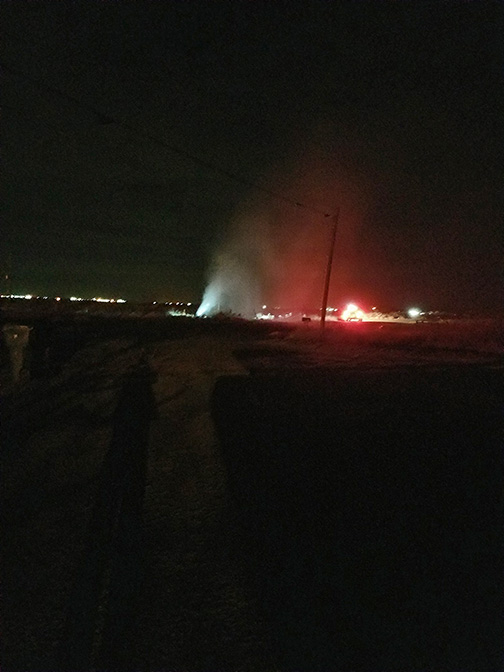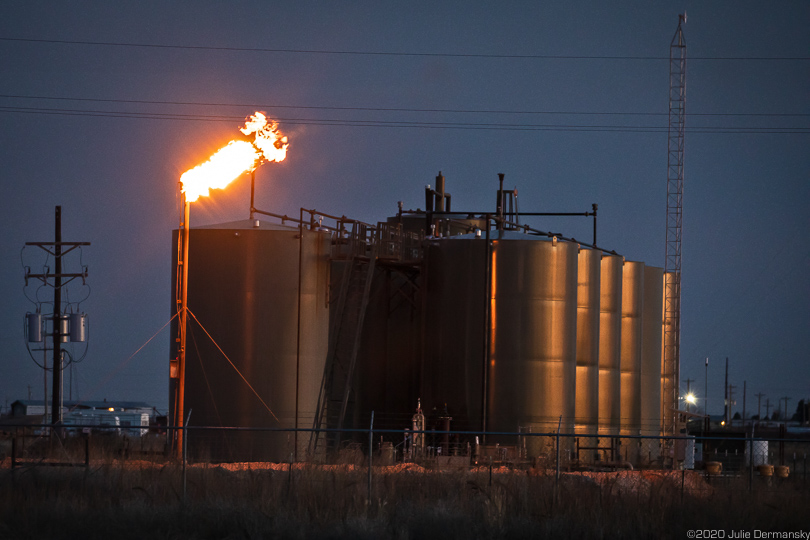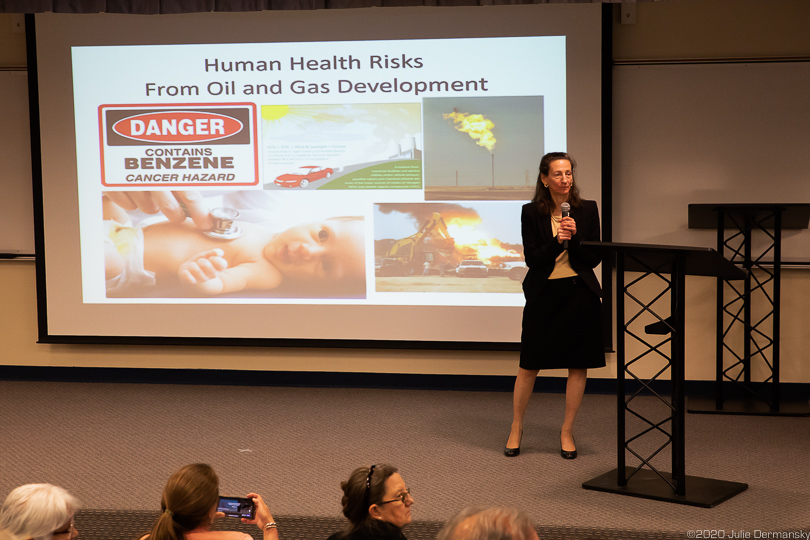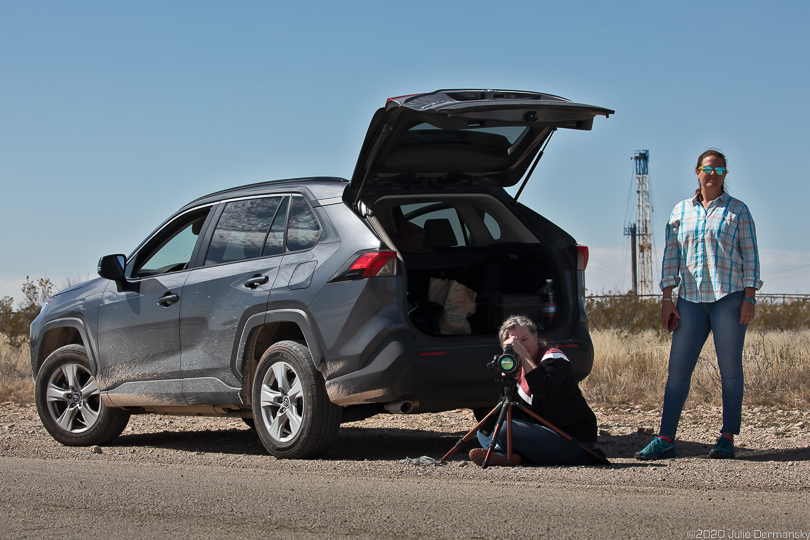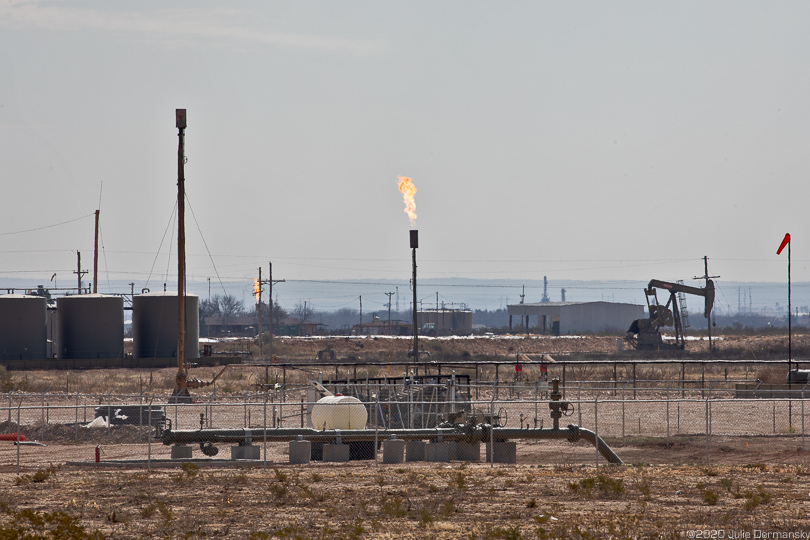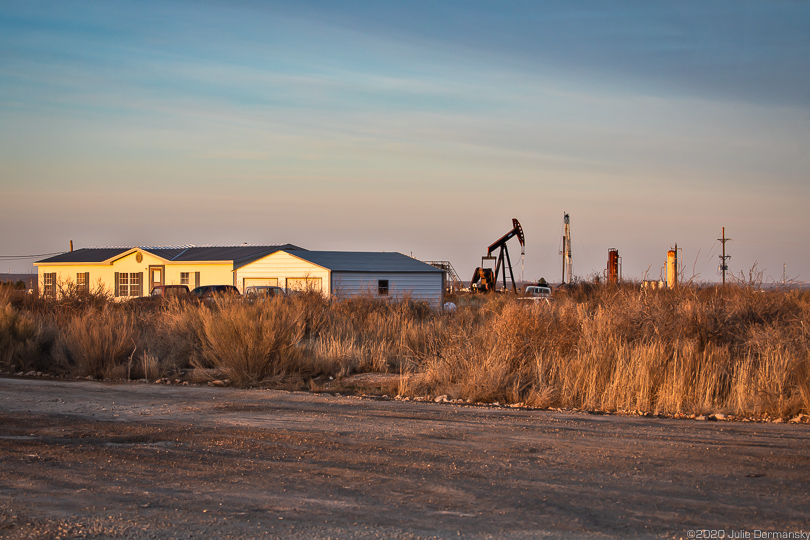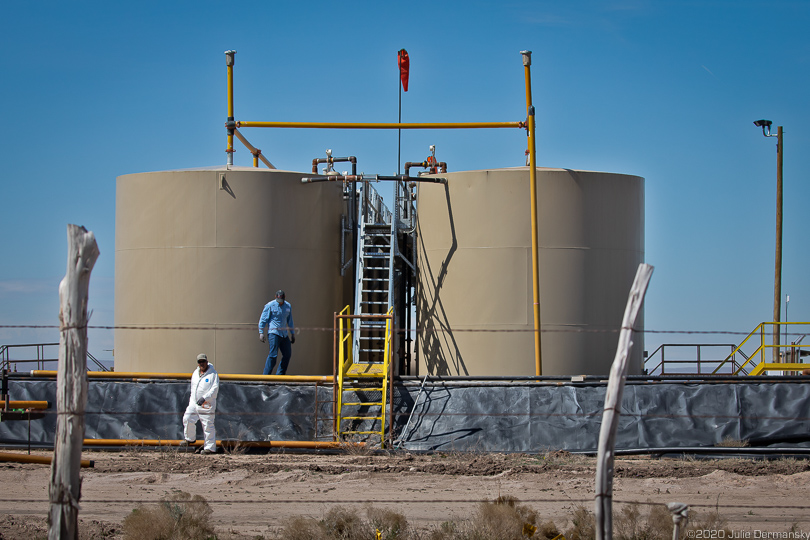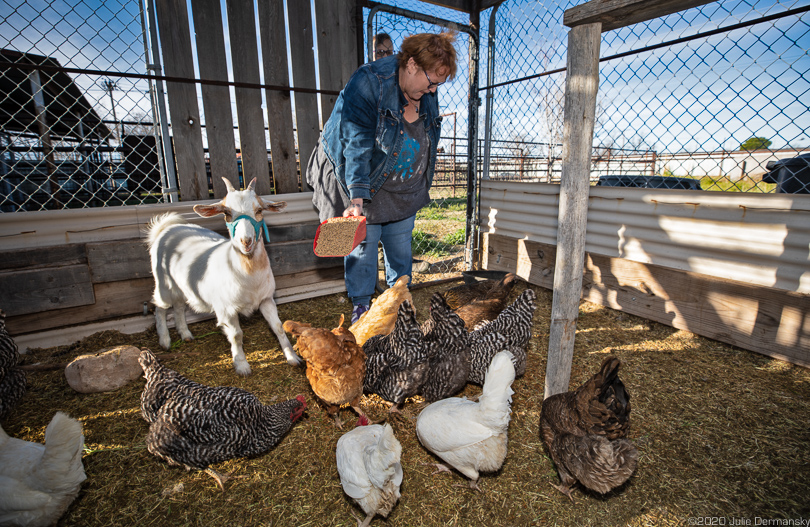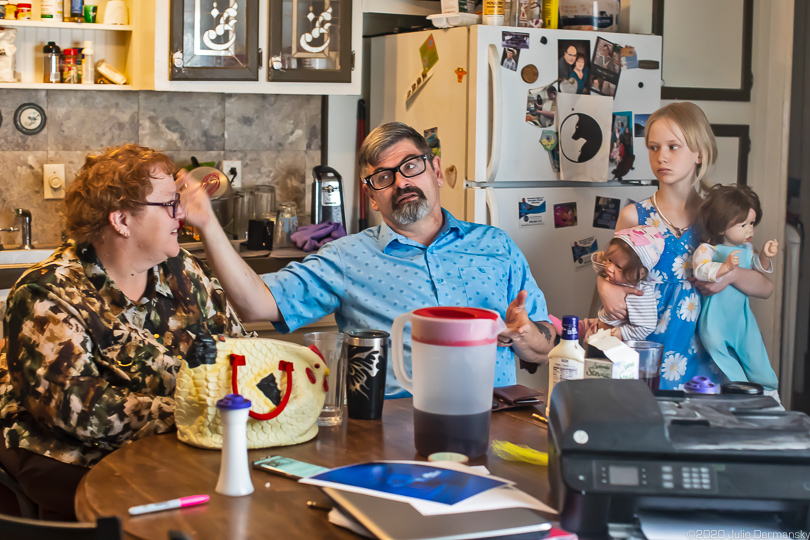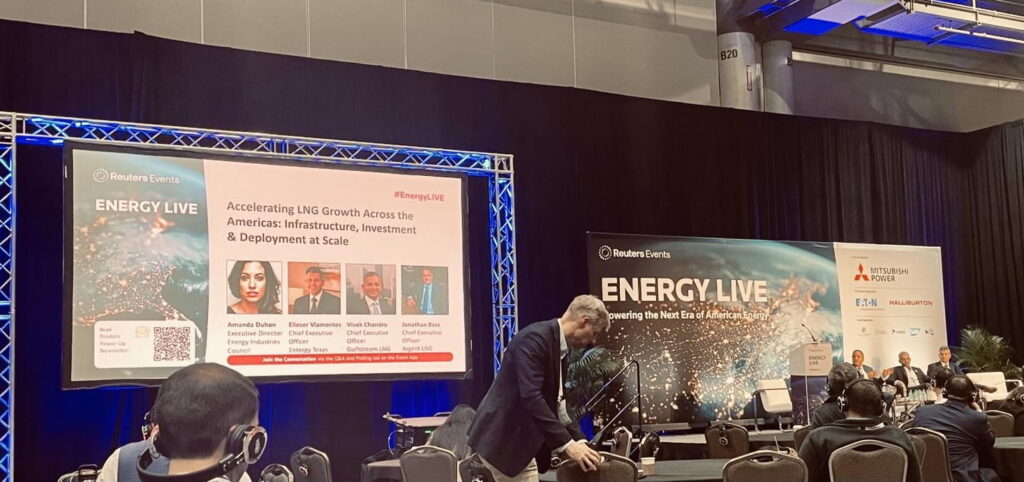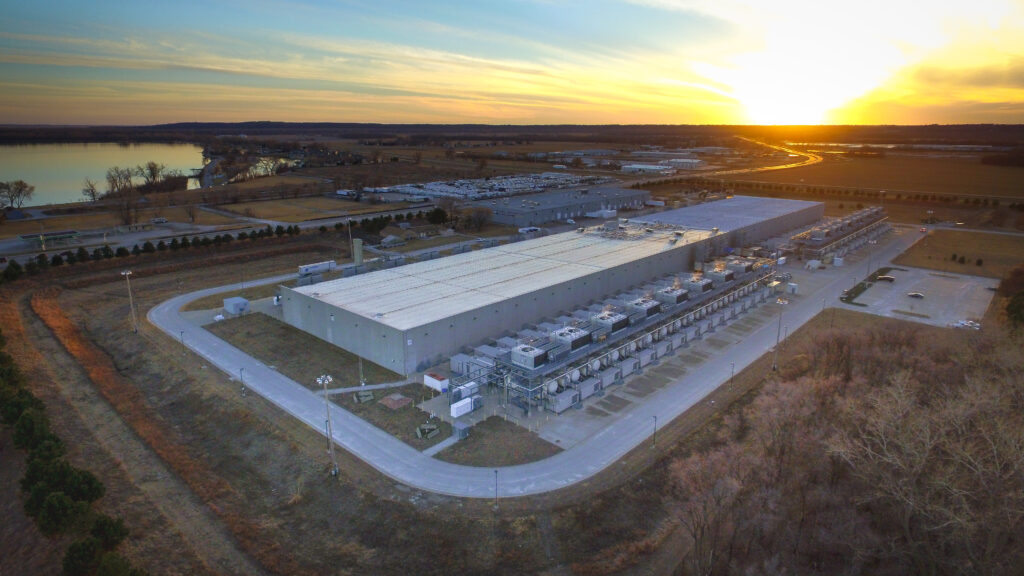Penny Aucoin and her husband Carl Dee George have worried about living near oil and gas producing sites in New Mexico’s Permian Basin since the sites began springing up near their home six years ago. They have wondered what effect the industrial pollution might have on them and their son and daughter — even more so now with the COVID-19 pandemic — but with no money to pick up and relocate, they have remained in their home.
Their worries escalated early in the morning on January 21, when a pipe transporting oil field wastewater at a WPX Energy production site exploded, dousing the family, their home, and land. According to The New Mexico Political Report, “‘The WPX pipe that burst is a part of a short, one-mile long pipeline that carries produced water from a producing well to a saltwater disposal well,’ said Kelly Swan, director of communications and community relations at WPX Energy.”
Produced water is a byproduct of oil and gas drilling and can contain corrosive salts, “oil residues, sand or mud, naturally occurring radioactive materials, chemicals from frac fluids, bacteria, and dissolved organic compounds,” according to the American Geosciences Institute.
Photo of produced water spewing from WPX’s site on January 21. Photo courtesy of Penny Aucoin
Aucoin and George now live in fear that another site nearby might explode. The flares from oil and gas sites scare Skyler who is 11 years old. They have yet to find out what exactly was in the produced water that coated them, and how it might impact their health, or what chemicals, if any, remain on their land. And now those fears are compounded by the highly contagious coronavirus now spreading in New Mexico as well as the rest of the globe. They worry that the family’s health likely is already compromised by long-term exposure to toxic chemicals from the oil patch surrounding them and that this could make them more susceptible to the virus.
Flare at an oil and gas production site near Aucoin and George’s home in Otis, New Mexico, near Carlsbad.
The Permian Basin is one of the most prolific oil and natural gas basins in the U.S. It spans southeastern New Mexico and West Texas. Numerous wells have been drilled and fracked since 2014 in an area that spans roughly 86,000 square miles and multiple shale sub-basins.
I met Penny and Carl on March 7 at a community meeting about human health risks from oil and gas development. The southeastern New Mexico community group Citizens Caring for the Future, along with environmental nonprofit Earthworks, hosted the meeting at New Mexico State University Carlsbad.
Penny told a group of about a hundred people her story, barely holding back tears in her eyes.
Penny Aucoin speaking on March 7, 2020.
She spoke about how much she loved sitting on their porch watching the birds in the trees, until an oil and gas rig was set up across from their home. Not long after that she began finding dead birds in her yard — “Ten today, twelve the next day,” she said. Then, some of her chickens started dying, and she began getting blisters on her face and experiencing other health problems.
Dr. Anne C. Epstein, MD, speaking at a community meeting on March 7, 2020.
Dr. Anne C. Epstein, a physician based in Lubbock, Texas, was the keynote speaker. She went over the results of various peer-reviewed scientific reports showing connections between human health and proximity to fracking industry sites. Gasps could be heard around the room, which was full of people who now live near the kind of sites on which the studies were focused.
In early March, a few days before the lecture, two Earthworks staffers, Sharon Wilson, based in Texas, and Nathalie Eddy, based in Colorado, considered canceling the meeting due to the rapidly spreading coronavirus, but the community group in New Mexico didn’t want to delay, so they went.
Before the March 7 meeting, I followed them as they took Dr. Epstein on a trip to monitor oil and gas industry sites near Penny and Carl’s home in Otis, a rural community in Eddy County outside Carlsbad. Wilson used an optical gas imaging (OGI) camera, which makes visible normally invisible pollution. Wilson found unlit gas flares that were likely releasing methane directly into the atmosphere. A glut of dirt-cheap natural gas produced as a by-product of the more valuable Permian oil drilling leads to much of the gas being burned as flares or released into the air by unlit flares.
Epstein was well aware of Earthworks’ years of documentation using the OGI camera to show numerous Permian Basin oil and gas sites releasing large quantities of methane, but seeing it for herself took her breath away. While she was looking through the camera, I asked Epstein what type of health impacts people face living less than 200 feet away from these industrial sites.
“Cancer, respiratory diseases, asthma, heart diseases, birth defects, lots of injury to small children, pregnant women, fetuses,” she listed, adding, “This is terrible.”
After the community meeting, I met Penny and Carl at their home. At dusk we could see five flares burning from their front yard. They told me that within a two-mile radius, they have counted 27 flares burning.
The WPX Energy site where the wastewater pipe broke is almost directly across the street from Penny and Carl’s home. They recounted how terrifying it was to come out in the dark and hear the hissing noise coming from the site as they were sprayed by a fluid that smelled like gasoline.
Earthworks’ Sharon Wilson and Nathalie Eddy monitoring an oil and gas facility in Otis, New Mexico.
Oil and gas facility in Otis, New Mexico, that Earthworks has reported numerous times for methane emissions filmed with their optical gas imaging camera.
Since that day, their chickens and goat have been moved to a nearby veterinarian’s facility. Penny took their daughter Skyler to visit and feed the chickens almost daily before New Mexico issued a stay-at-home order to stop the spread of the coronavirus. Skyler misses the chickens and goat tremendously and can’t understand why she can no longer go outside and play or visit their animals.
WPX paid to have the family’s chickens and goat moved after the accident, deeming their yard too dangerous for animals, but according to Penny and Carl, the company never offered funds for the family to relocate with their dogs.
Penny told me WPX wants the chickens to be put down. “They told us not to eat the eggs, because they worry what is in the eggs,” she said. If being sprayed with the produced water makes the chickens’ eggs toxic, Penny and Carl wonder what could be in their own bodies and what was in the fluid that coated them and their land. They don’t know and the company isn’t required to tell them because the make-up of produced water is considered proprietary.
“Produced water/brine is an extraordinarily complex and hazardous substance. It is well known to contain high levels volatile organics, which include known human carcinogens such as benzene, toxic heavy metals, such as arsenic and lead, and also the radioactive element radium,” Justin Nobel, a journalist for Rolling Stone and DeSmog, wrote by email. Nobel’s investigative report for Rolling Stone, “America’s Radioactive Secret,” dives into the dangers of fracking wastewater, also known as brine.
“Oil field brine for human health purposes should be considered hazardous industrial waste. So if brine has just showered down on a family’s lawn then they have just had an industrial waste spilled on their property and the land should be treated accordingly, and the family should be compensated accordingly,” Nobel told me while discussing Penny and Carl’s situation. “I am constantly telling energy and environmental reporters, produced water/brine is not just brine; it is an extraordinarily complex type of toxic waste. And had our nation’s environmental regulators not sold out decades ago to the oil and gas industry, it would be labeled accordingly and the situation involving this family would — by law — have gone quite differently.”
Dr. Epstein told me people like Penny and Carl who live around oil and gas industry sites could be at greater risk from the coronavirus. Though she can’t say what harm, if any, they faced from being doused with produced water, she explained by email the well-established link between high levels of benzene in the air and immune system suppression. She cited studies of select facilities called “super-emitters” that can release high levels of benzene and other air pollutants.
Home outside of Carlsbad’s city limits near an oil and gas production site.
Oil and gas industry workers at a site in Eddy County, New Mexico.
“People who live in close proximity to super-emitters or to multiple leaking facilities would be at risk of exposure to benzene levels high enough to cause immune suppression,” Epstein said.
“Oil and gas development increases ozone levels, and higher ozone levels increase the risk of asthma attacks, respiratory illnesses, and heart disease,” she added. “People with lung disease and heart disease are at higher risk of severe illness due to COVID-19. It has been shown directly that patients with asthma who are exposed to dense oil and gas development are at higher risk of asthma attacks, and that would put them at higher risk of severe illness due to COVID-19.”
Penny Aucoin spreads feed while visiting her chickens and goat at a veterinary facility on March 9.
Penny Aucoin, Carl George, and their daughter Skyler in their home across from the WPX Energy site in Otis, New Mexico.
Carl and Penny miss their chickens’ eggs now more than ever. When they went to stock up on supplies in Carlsbad, after pandemic worries took hold, they couldn’t find eggs, one of the staples they didn’t have to shop for before WPX’s pipe exploded.
“We are in a ‘damned if we do, damned if we don’t’ situation,” Penny said during a call on April 2. Since the spill in late January, they have tried to spend as little time at home as possible, but now are stuck at home.
“For some people living next to oil and gas, staying at home means trading one health crisis for another,” Earthworks’ Wilson said by email. “Protecting against COVID shouldn’t mean breathing more carcinogens like benzene, but it does.”
WPX representatives recently took new samples of Penny and Carl’s soil, but unless a third party performs the testing, the couple says they won’t trust the results. I asked WPX who the company is using to analyze the soil samples, what was in the produced water, and why the family wasn’t relocated after the accident, but did not hear back from the company before deadline.
They have asked state regulators for help, but with the worsening pandemic, they fear their situation has been placed on a back burner. Both have coughs and scratchy throats, along with a growing anxiety about what the future has in store for them.
Main image: Penny Aucoin, Carl George, and their daughter Skyler in front of their home in New Mexico’s Permian Basin. Credit: All photos and video by Julie Dermansky for DeSmog
Subscribe to our newsletter
Stay up to date with DeSmog news and alerts


